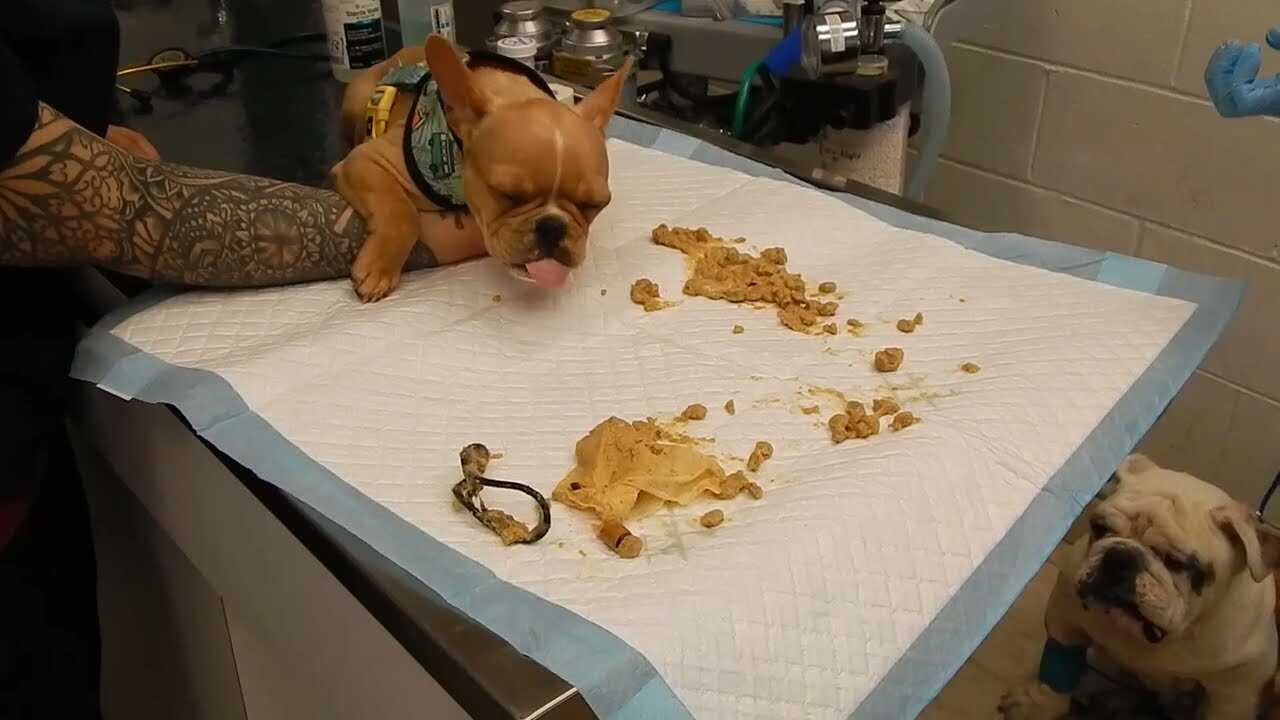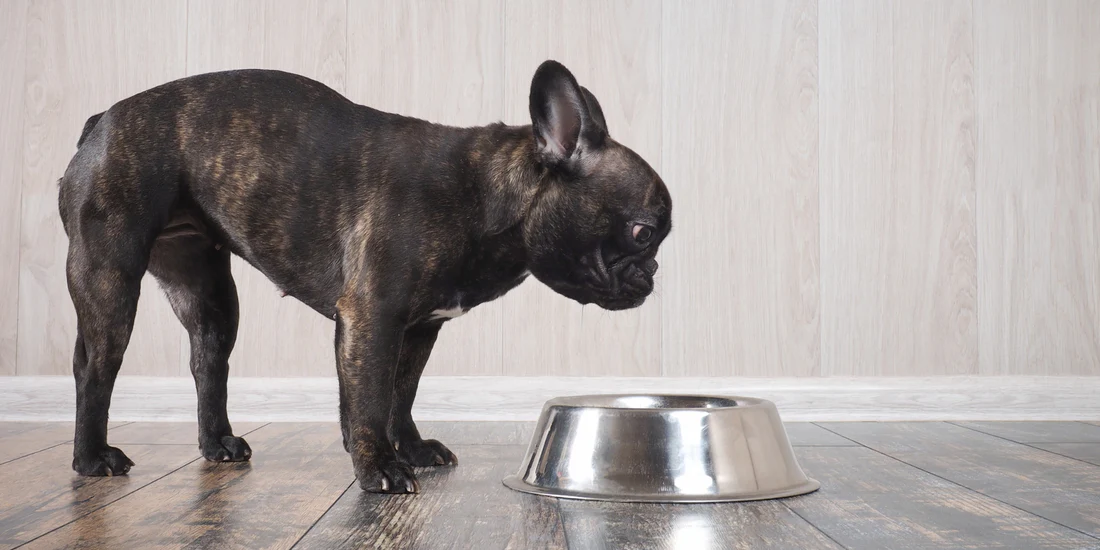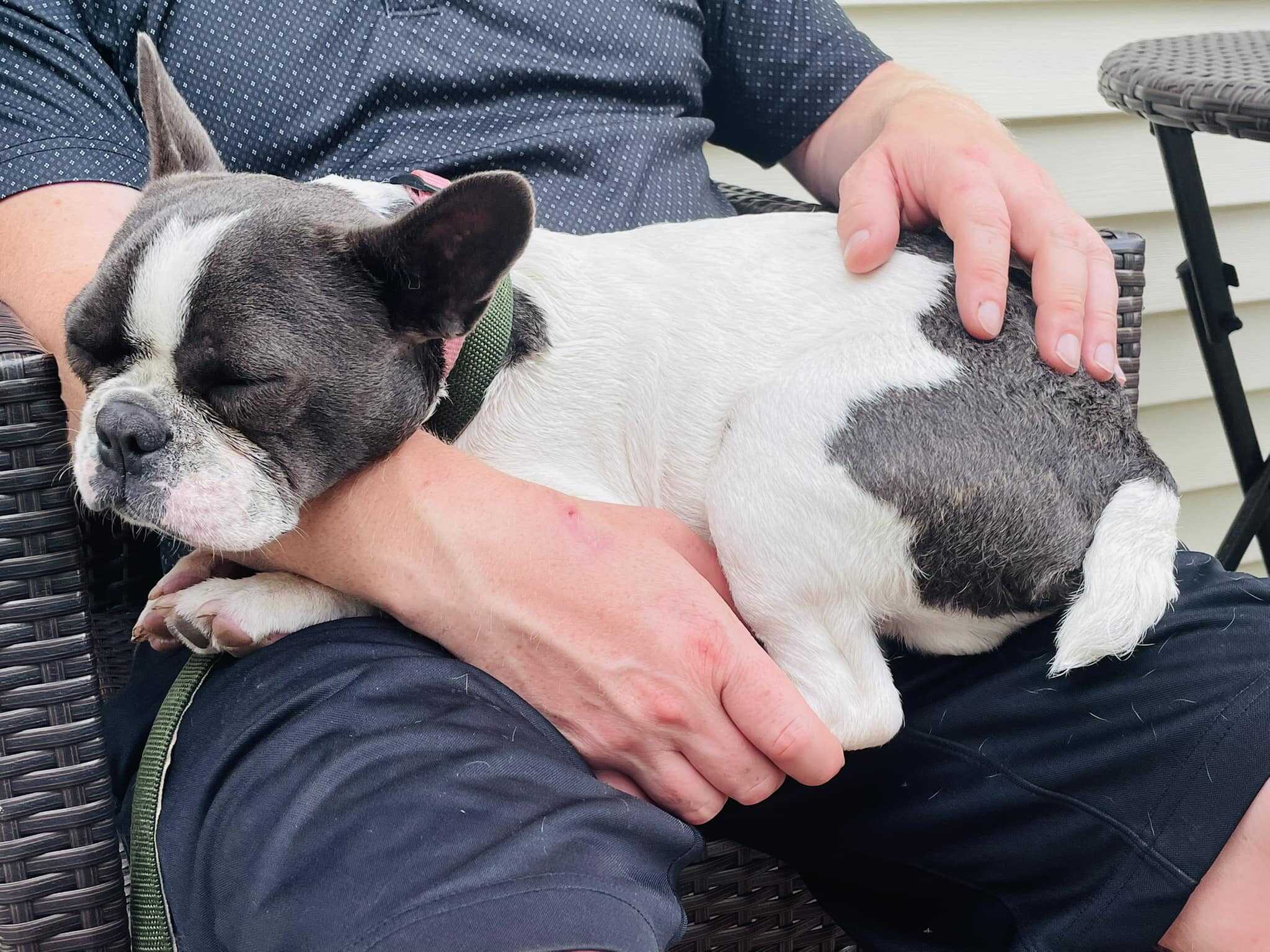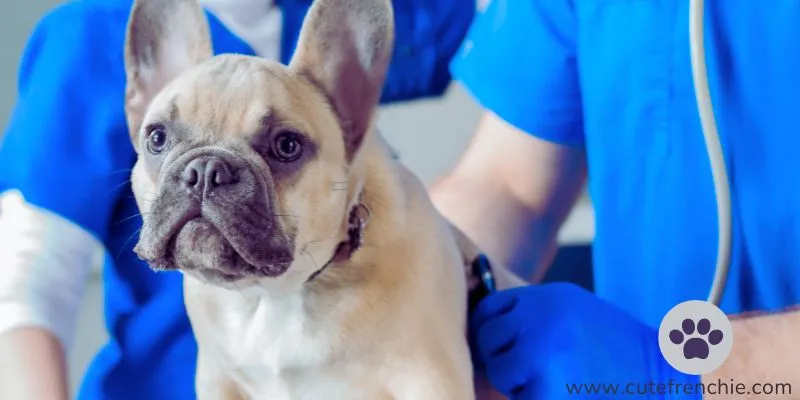Why do French bulldogs throw up a lot?

Witnessing your French Bulldog in distress and feeling unwell can be an unsettling experience, leaving you unsure of how to provide the necessary help.
Vomiting, whether experienced by you or your furry companion, is an unpleasant occurrence.
While it’s essential not to generalize, it’s not uncommon for French Bulldogs to experience frequent bouts of vomiting.
Similar to humans consuming something unsuitable or having a sensitive stomach, these factors can prompt our bodies, and likewise our canine friends, to expel the offending material, often resulting in vomiting

Quick Response :
Their brachycephalic nature significantly influences this tendency. Due to their short-faced structure, French Bulldogs commonly gulp water and food, leading to occasional—or rather, frequent—gas issues. This habit also amplifies their susceptibility to vomiting compared to many other breeds.
Why does my French Bulldog vomit foam?
The term “brachycephalic” characterizes a skull shape that appears flattened from back to front, sometimes to the extent of seeming to lack a nose.
This facial structure can lead to digestive problems. While often not a cause for alarm, if your French Bulldog vomits white foam, it’s crucial to seek advice from a vet.
Persistent vomiting of white foam could indicate stomach dilation or gastric torsion, which are serious conditions in a French Bulldog.
Addressing the concern of white foam vomiting is paramount for Frenchie owners.

French Bulldog regurgitating undigested food
If your French Bulldog consistently regurgitates undigested food, several factors might contribute to this issue. Even veterinarians may find it challenging to diagnose, yet a few common possibilities exist.
Possible causes include:
Brachycephalic syndrome: This condition leads to gagging, vomiting, and regurgitation of undigested food due to an elongated soft palate, everted laryngeal saccules, and other associated issues.
However, this is more commonly linked to white foam vomiting. Oesophageal
disorders: These may stem from hereditary factors or hernias and usually require professional veterinary diagnosis.
Food allergies: Frenchies can develop allergies to various foods, causing vomiting, especially in young puppies. Consulting a vet is advisable if you have concerns.
Fun Fact: Regurgitation occurs when a French Bulldog vomits food that hasn’t yet reached their stomach. Vomiting, on the other hand, involves expelling food that has already entered the digestive system.

French Bulldog Sick Symptoms to Watch For

3: Oesophageal Issues and Disorders
Several oesophageal disorders can affect French Bulldogs. While not an exhaustive list, here are some common ones:
Vascular Ring
This congenital defect, possibly hereditary, involves a persistent right aortic arch that forms a ring around the oesophagus, constricting it and hindering food passage.
Though uncommon in French Bulldogs, it warrants attention. Symptoms usually manifest within the first six months after birth, and a vet’s assessment is necessary for appropriate treatment, which might include antibiotics, oxygen supplements, or surgical intervention.
Esophagitis
Esophagitis, an inflammation of the oesophagus, may stem from acid reflux or food allergies, leading to symptoms such as pain during swallowing, coughing, weight loss, and loss of appetite.
A vet visit is advisable, and treatment typically involves medication or dietary changes to alleviate symptoms. Balloon catheters might be employed in severe cases to manage oesophageal narrowing.
Megaoesophagus
This condition involves a dilated oesophagus due to weakened peristaltic activity, hindering food passage into the stomach. Diagnosis involves barium swallows and x-rays, requiring veterinary attention.
Although incurable, management focuses on a vertical feeding position, which proves challenging but necessary for your Frenchie’s well-being.
Hiatal Hernia
Detected during exercise or excitement, a hiatal hernia results from an opening in the diaphragm through which the oesophagus passes before entering the stomach.
Symptoms may necessitate surgery or anti-inflammatory drugs to alleviate inflammation inside the oesophagus, although surgery might be required for severe cases.
Understanding these symptoms and conditions can aid in recognizing potential issues your French Bulldog might face, ensuring timely veterinary intervention for optimal care and management.
How to Prevent Your French Bulldog from Vomiting

Preventing your French Bulldog from vomiting involves implementing several precautionary measures and understanding potential causes to ensure your pet’s well-being.
1. Keep Hazardous Items Away
To safeguard your Frenchie’s health, it’s crucial to keep household hazards out of reach. Store trash securely and avoid leaving leftovers accessible to prevent accidental ingestion. Deny access to chemical hygiene products such as cleaning agents, which can pose severe health risks. Remove toxic substances from your pet’s environment, including poisonous plants and hazardous materials. Additionally, eliminate small objects and toy parts that could be swallowed, causing choking or digestive issues.
2. High-Quality Diet
Offering a high-quality diet specifically tailored for French Bulldogs is paramount. Opt for food formulated to meet their nutritional needs, considering their sensitive stomachs. Avoid feeding your Frenchie harmful foods like chocolate, grapes, or avocados, which can trigger adverse reactions or toxicity.
When addressing vomiting incidents in French Bulldogs, owners must remain vigilant. Vomiting might indicate minor issues, but it could also signal underlying health concerns that require immediate attention. When your Frenchie vomits, observe the following signs:
Examine Vomit Content
Analyzing the vomited content is essential in identifying potential causes. Take note of the vomit’s appearance, such as the presence of food, mucus, bile, white foam, blood, or foreign objects. Collect any foreign items and show them to your vet for evaluation. Documenting the vomited content and any accompanying signs, such as lethargy or diarrhea, will assist your vet in making a proper diagnosis.
Observe and Wait
After a vomiting episode, it’s advisable to withhold food and water temporarily while monitoring your Frenchie’s behavior. If your dog exhibits normal behavior following vomiting, gradually reintroduce regular feeding after a period of 6 to 12 hours. Continuously observe for any additional signs of discomfort or recurring vomiting. Seeking professional veterinary assistance is crucial if vomiting recurs or other concerning symptoms develop.

Managing Food and Water
If your Frenchie’s vomiting subsides, introduce small amounts of water after the next meal to assess tolerance levels. If water intake is well-tolerated, consider offering cooked rice mixed with lean chicken in modest portions. Refrain from administering medications intended for humans without prior consultation with a vet. If your dog refuses food for an extended period or displays persistent symptoms like chronic vomiting or lethargy, seeking prompt veterinary guidance is essential.
Preventing Fast Eating
Addressing rapid eating habits in French Bulldogs requires employing slow-feeding dog bowls designed to prolong mealtime and deter hasty consumption. Anti-choke feeding bowls with safety features, such as non-toxic materials and anti-slip bottoms, promote safer eating practices. These bowls aim to engage your pet during mealtimes and decrease the risk of choking or digestive issues associated with rapid eating.
By prioritizing a safe living environment, providing a well-balanced diet, and actively monitoring your French Bulldog’s health, you can significantly reduce the occurrence of vomiting episodes and maintain your pet’s overall health and well-being
Potential Food Triggers for Your Frenchie’s Vomiting
Although your Frenchie might express an eager interest in devouring anything within reach, certain foods are strictly off-limits for their health.
The following foods pose a high risk of inducing vomiting in dogs, and some are even dangerously toxic:
It’s imperative to steer clear of these foods to safeguard your Frenchie’s well-being:
- Xylitol
- Alcohol
- Avocado
- Chocolate
- Macadamia nuts
- Grapes or Raisins
- Human medications
- Specific plants like azaleas, rhododendrons, tulips, daffodils, and sago palm
Insights from Other French Bulldog Owners
Throwing up is totally normal for Frenchies, at least in our experience. Just keep an eye on them and make sure they aren’t getting dehydrated. If you notice a change in their energy level or appetite for a few days in a row then it might be a good idea to get them checked out at the vet, at the very least for your own peace of mind. We’ve gotten used to it over the years and don’t freak out whenever they throw up on the floor anymore but it can be quite worrisome if you’re not used to it.
When ours starts this we do the following before heading to the vet.
Switch to wet food we bought from the vet thats super plain.
Monitor behavior and water consumption
We already have them eating out elevated bowls
Remove all toys with string or rope. Bits come off and cause all sorts of problems and even the unmentionable.
Our vet has said small amounts of Pepcid is ok with meals for occasions like this.
We got those slow feeder bowls which forces them to eat slower because it’s harder to get at all the food and we haven’t had throw up issues since. Might be worth looking into.

FAQs: French Bulldogs and Vomiting
1. Why does my French Bulldog vomit frequently after eating or drinking?
- French Bulldogs tend to eat and drink rapidly, leading to digestive issues like vomiting. This rapid ingestion can cause them to gulp air along with their food or water, resulting in regurgitation or vomiting.
2. How can I prevent my French Bulldog from vomiting after meals?
- To prevent vomiting, consider feeding smaller, more frequent meals to slow down their eating pace. Using specialized slow feeder bowls or anti-choke feeding bowls can help regulate their eating speed and reduce the likelihood of vomiting.
3. My French Bulldog vomits foam occasionally. Should I be concerned?
- Occasional vomiting of white foam, especially when the stomach is empty, might not always be a cause for immediate concern. However, if this becomes frequent or is accompanied by other symptoms like lethargy or loss of appetite, it’s advisable to consult a vet.
4. Are there specific foods that I should avoid feeding my French Bulldog to prevent vomiting?
- Yes, several foods can trigger vomiting or be harmful to French Bulldogs. Avoid feeding them foods such as chocolate, grapes, raisins, avocado, macadamia nuts, and anything containing xylitol, as these can cause vomiting or even be toxic to dogs.
5. When should I seek veterinary help if my French Bulldog is vomiting?
- If your French Bulldog vomits persistently, experiences repeated episodes of vomiting within a short span, shows signs of distress, exhibits blood in vomit, or displays other concerning symptoms like diarrhea or lethargy, it’s crucial to seek prompt veterinary attention.
6. Can stress or anxiety cause my French Bulldog to vomit?
- Yes, stress or anxiety can impact a French Bulldog’s digestive system, potentially leading to vomiting. Changes in routine, new environments, or separation anxiety might trigger stress-induced vomiting in some dogs.
7. How can I help my French Bulldog recover after vomiting?
- After a vomiting episode, it’s recommended to withhold food for a few hours, then gradually reintroduce small amounts of water followed by easily digestible bland food like boiled rice or chicken (without seasoning or fat). Monitor their response and seek vet advice if vomiting persists or worsens.
8. Can certain health conditions contribute to vomiting in French Bulldogs?
- Yes, various health conditions like gastrointestinal disorders, food allergies, esophageal issues, or even underlying systemic diseases can lead to vomiting in French Bulldogs. Consulting a veterinarian for proper diagnosis and treatment is essential for managing such conditions.
9. Is it normal for French Bulldogs to vomit occasionally as they age?
- Occasional vomiting might occur in aging French Bulldogs due to various reasons, including age-related digestive changes or underlying health issues. However, consistent or frequent vomiting should never be considered a normal part of aging, and it’s best to seek veterinary advice for proper evaluation.
10. Can I administer over-the-counter medications to my French Bulldog for vomiting?
- It’s crucial to avoid giving any medications intended for humans to your dog without consulting a veterinarian first. Some human medications can be harmful or ineffective for dogs and may worsen their condition. Always seek professional guidance before administering any medications to your pet

Understanding why French Bulldogs vomit and how to address this issue is vital for responsible pet ownership.
Vomiting in Frenchies can arise from various factors, including eating habits, underlying health conditions, or ingesting harmful substances.
As owners, it’s crucial to be vigilant and proactive in preventing and managing vomiting episodes.
By implementing preventive measures like regulating their diet, using specialized feeding bowls, and keeping hazardous items out of reach, you can minimize the risk of vomiting in your beloved Frenchie.
Recognizing the signs, examining vomit content, and seeking veterinary advice promptly when needed are essential steps toward ensuring your pet’s health.




